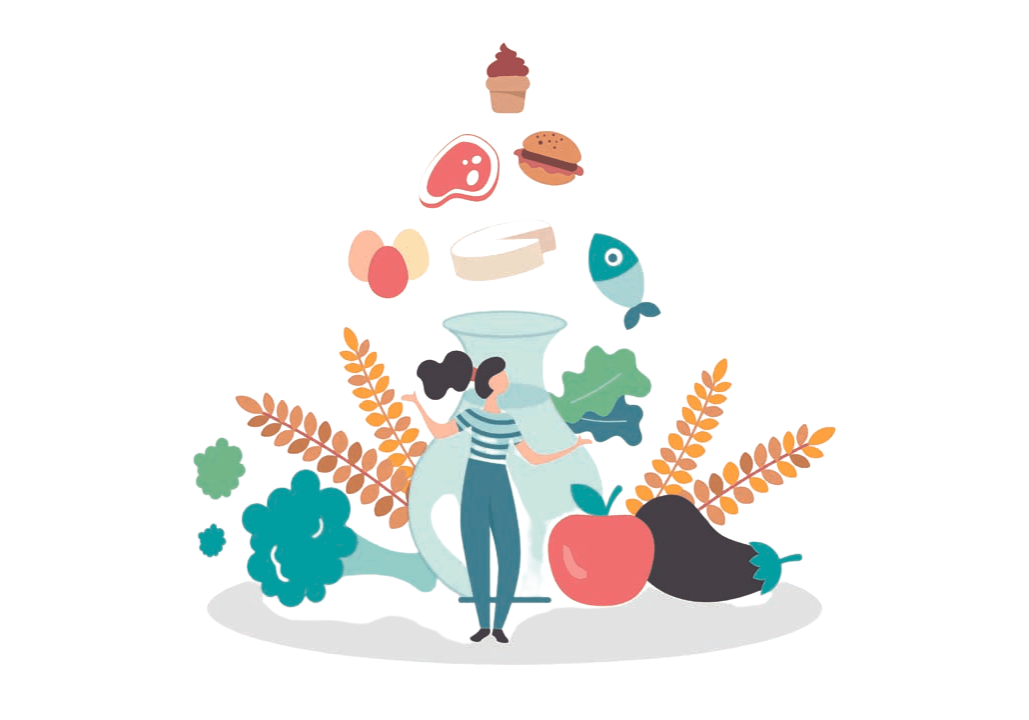
Beat food guilt
How food guilt can impact your mental health. By Graeme Tomlinson
Each time we feel guilty about something it tends to affect our self-esteem. There might be feelings of shame or self-loathing. Perhaps wishing we could turn the clock back. These feelings are ultimately born out of a reflective moral code of being good or bad in our actions.
Over the last few decades, the moral code that we all have (recognising good or bad) has crept into how we describe the food we eat and feel about ourselves when we eat it. The diet industry and popular culture have labelled certain foods or certain ways of eating as good or bad for health, but is it that black and white? If certain foods were ‘bad’ for health, how do we become ‘bad people’ for eating them?
Firstly, no food on the planet is good or bad for health or makes you a bad person when you eat it. This is because each food needs to be appraised in the context of your overall diet. Those who label donuts as ‘bad’ aren’t bothering to understand whether you are consuming one donut per week, or 10 a day. Those who say a salad is ‘good’ aren’t taking into account what else you’ve eaten across the week. What if it was just one salad and the rest was fast food? In the wider context, appreciating your diet as a whole allows you to accurately conclude how healthful your diet is. It also liberates you to enjoy those less nutritious foods in moderation as part of a balanced diet.
In my new book I discuss how letting moral codes dictate our food choices opens the door to judging ourselves through the microscopic lens of each eating episode. If we enjoy the taste of chocolate but think it’s bad in any amount, eating it will create feelings of guilt and shame. A natural reaction to this is punishment or self-sabotage. Instead of eating chocolate in moderation we might be inclined to punish ourselves afterwards or believe we have failed and eat excessively. The cycle is not good news for your relationship with food and your mental health.
Instead, why not view each eating episode through the lens of a much bigger picture. Perhaps a week, month or even a year? How significant is eating one ultra-processed high calorie takeaway each week? It’s just one meal out of 21, or four out of 84, or 52 out of 1092. This is just around 5% of your total food intake.
What is going on across the other 95%? This approach can really free your mind to realise that the effect each single eating episode has on your health is very, very small in the grand scheme of things and that you can eat your favourite foods regularly. Of course, if consumption of ultra-processed, high calorie foods is frequent, say three or four takeaways each week or three or four ultra-processed, high calorie snacks per day, the effect on your health will be more prominent.
By understanding nutritional structures in the food you eat in the form of energy, macronutrients and micronutrients, you arm yourself with real information that is useful. Words like good, bad, clean, dirty, healthy and unhealthy are popular descriptions of food but they don’t really mean anything useful regarding the stone-cold facts. For example, broccoli is often called ‘healthy’ or ‘clean’ because it contains nutritious qualities in the form of micronutrients. Fair enough. But a donut is often called ‘unhealthy’ or ‘dirty’ because it doesn’t contain as many nutritious qualities. But with this being one single donut out of tens of thousands of eating episodes across your life, how exactly does the donut harm your health? The answer is that it doesn’t. Unless you’re allergic, it is impossible. What’s more, the donut may bring you joy because it tastes good. So by demonising donuts and banning them on the basis of them being ‘unhealthy’ or ‘bad’ you would be denying yourself moments of joy for no good reason.
Our diet definitely has a major influence on our physical health and it is definitely a good idea to consume a diet rich in nutrients, protein and fibre that enables us to function well and lead a rich and fulfilling life full of energy. But it’s also hugely important for your mental health that you include your favourite foods too, even if they aren’t particularly healthful. Not least because they can form part of a balanced, supportive diet and add joy to your life and support your mental health. In my book, I aim to shut out the diet myths and unhelpful mindsets that hold people back from the happiness they deserve. It turns out that the path to sustained physical and mental health can be simplified greatly by removing propaganda and falsehoods and replace them with facts and real-life contexts.
Graeme Tomlinson’s new book Lose Weight Without Losing Your Mind is out now, published by Ebury and priced at £16.99. It’s available online and from all good bookshops.


